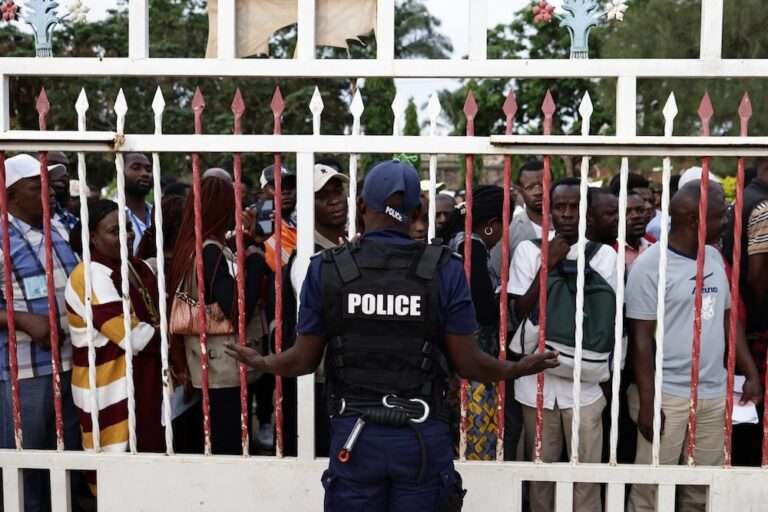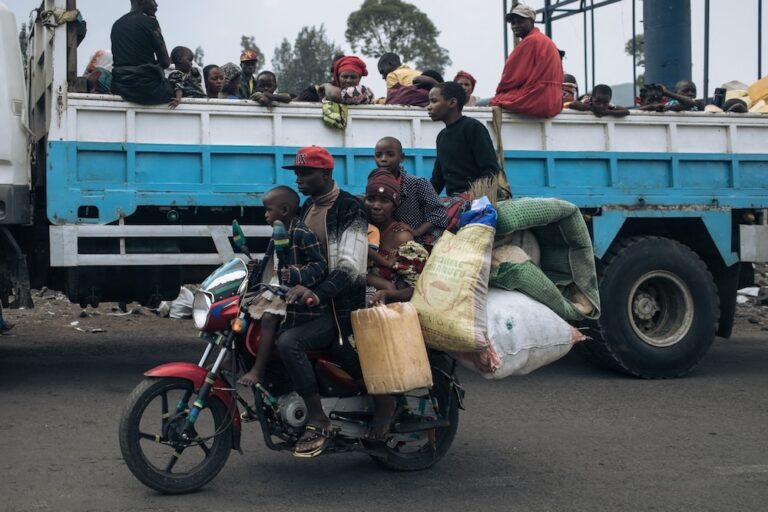(JED/IFEX) – Made of civil society organizations and media, the DRC Natural Resources Network, set up from the Lubumbashi Workshop on “The role of media and the civil society in the natural resources exploitation in the DRC”, is expressing deep concern, after its members suffered recurrent threats in Lubumbashi, capital city of Katanga Province. These […]
(JED/IFEX) – Made of civil society organizations and media, the DRC Natural Resources Network, set up from the Lubumbashi Workshop on “The role of media and the civil society in the natural resources exploitation in the DRC”, is expressing deep concern, after its members suffered recurrent threats in Lubumbashi, capital city of Katanga Province.
These threats followed the publication of the 19 April 2006 Network Final Declaration, denouncing the mismanagement of Congolese natural resources, characterized notably by: one-sided contract-signing, ecosystem and environment deterioration, and bribery in the assignment of exploitation rights. At the same time the DRC Natural Resources Network members have underlined their goodwill to struggle against the looting of natural resources and contribute to the instauration of sound governance in the mining sector, particularly in Katanga Province.
Since then, lawyers Jean Claude Katende and Jean-Pierre Muteba, respectively the African Association for Human Rights Defense president (Asadho/Katanga), and the Unionists’ New Dynamics general secretary (UND), have received several anonymous calls from individuals accusing them of spreading reports from foreign partners. Since the reports are accusing Congolese politicians and political parties, these individuals have instructed the associations responsible to shut up or else they may “disappear.”
In the same vein, some people close to political parties and politicians quoted in the report have made declarations on local radio and television channels in which they accused the workshop organizers of being at the mercy of the NGOs who want to harm the interests of the legally established power.
To recall, the Lubumbashi workshop final declaration was based on different reports from national and international organizations, notably: the United Nations Panel report on the illegal exploitation of the DRC natural resources entitled, “The state against the People, fatal transactions”, the Special Parliament’s Commission report, also known as the Lutundula Commission, charged with examining the validity of the financial and economic contracts signed during the 1996 and 1998 wars, which were demonstrable examples of poor governance in the management of natural resources.
At a press conference held on 20 April, following the final declaration’s release, the provincial president of the People’s Party for Reconstruction and Democracy violently attacked, without naming them, “those organizations who have gone to great lengths to steal a political party’s internal documents, in an attempt to exploit them ill-advisedly to garner commercial funds and give pretence for their foreign partners to regularly attack the actions of legally established institutions”.
He called these relentless efforts “a new kind of war against which we will have to fight in order to preserve our dignity, stabilize our country’s Independence and safeguard the democratization process which is starting to take hold.”
With respect to these circumstances, the DRC Natural Resources Network has sought to express that its intention was guided by a concern of fairness, given the central importance of natural resources to development in the DRC, not to harm, without grounds, any political party or personalities. Consequently, the Network urges the Katangese provincial authorities to take all the necessary measures to put an end to the attacks directed towards the Katanga membership and assure their physical security.


